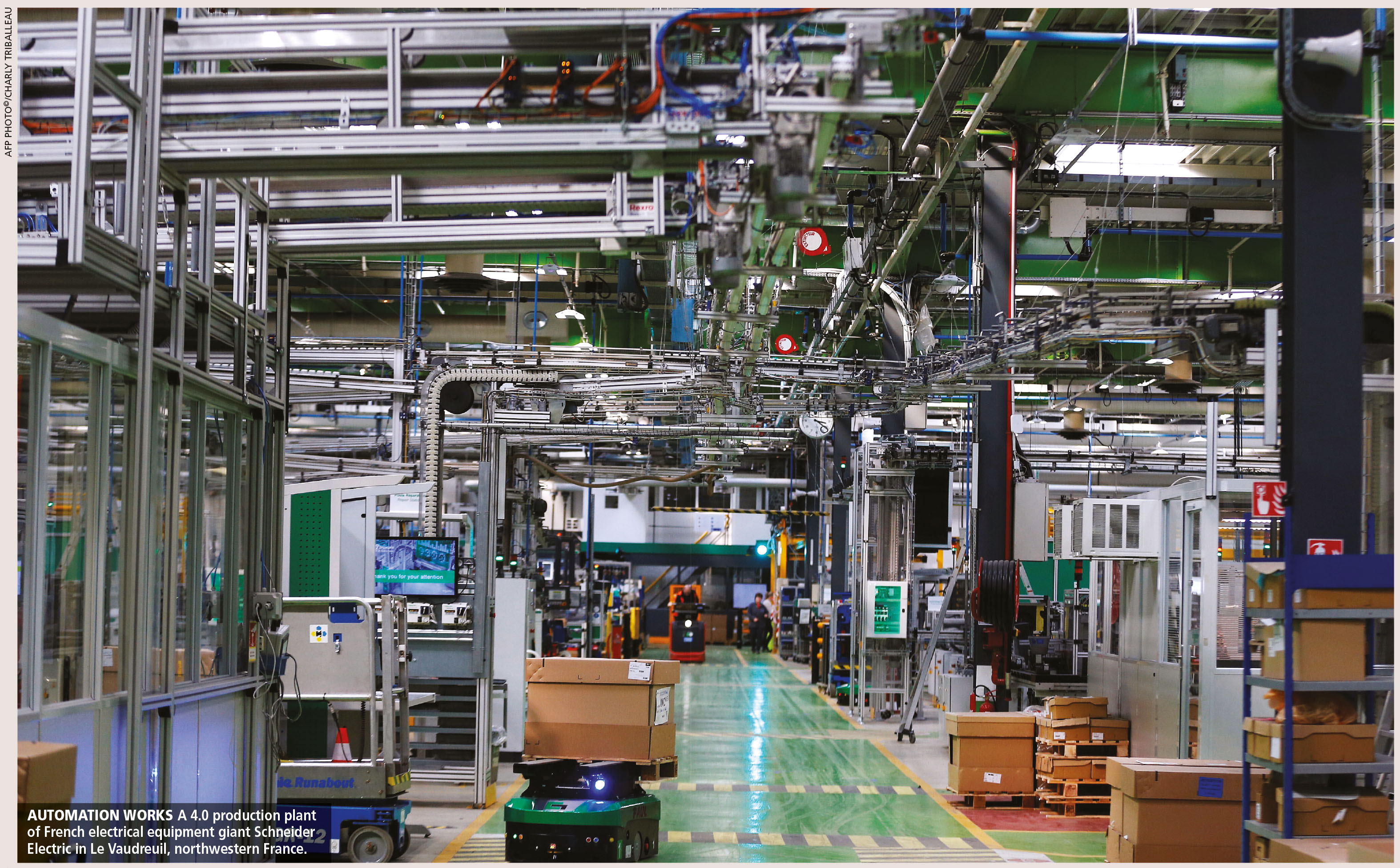INDUSTRY 4.0
BUILDING SMART FACTORIES
Smart quality management in the Fourth Industrial Revolution – Sanjeewaka Kulathunga
Due to the constant expansion of advanced manufacturing technologies based on AI and machine learning, industrial productivity is multifold with optimal efficiency. According to the timeline, the First Industrial Revolution began with steam engines; and subsequently, by the end of the 19th century, the Second Industrial Revolution was led by electric machinery and labour division.
Automation resulted in the Third Industrial Revolution, which was conspicuous throughout the 20th century. Currently, the Fourth Industrial Revolution has appeared on the scene due to the emergence of artificial intelligence, machine learning and so on.
The Fourth Industrial Revolution is also called ‘Industry 4.0’ or ‘Smart Factory.’ As a trend, most businesses around the world have been embracing AI to make their operations more effective and efficient, while assuring the quality of their products and services.
Accordingly, intense competition in the globalised market is pushing corporate executives to embrace artificial intelligence as a strategy to ensure quality assurance. Quality management professionals should be proactive and align quality assurance with the smart factory phenomenon.
Since total quality management is forged with the sophisticated industrial revolution, it’s necessary to acquire a holistic understanding of the different perspectives of AI and its implication on production quality, supply chain network and quality management system (QMS).
In transforming an ordinary factory into a smart equivalent, the entire manufacturing process has to be built on an artificially intelligent and individualised production process that can be self-directed to customers through digitally operated supply chain networks.
A smart factory is an integrated and collaborative manufacturing process that functions together with IoT. These synchronise both the vertical and horizontal integration of organisational value chain networks while augmenting their capabilities.
The Cyber Physical System (CPS) is a key driver in smart factories to enable real-time communication between humans and machines through the Internet of Things (IoT). This can help supervise the physical process and create live virtual representation enabling relevant staff to make decentralised decisions.
Upgraded supply chain networks and QMS are essential pillars for the transformation of a regular factory into a smart one with the capacity to cater to the demands and expected standards of the Fourth Industrial Revolution.
Artificial intelligence, machine learning and modernisation of existing equipment are required as a smart technological investment. Both internal and external IoT data will be exponentially increased and transformed into a self-analytical information system to make the right industrial decisions at the right time.
In applying such a predictive analytical system, the prevention of defects and wastage, and the reduction of delay, can be effected. Continuous quality improvement and learning will be the norm for Industry 4.0.
As an integral part of the smart manufacturing process, an AI enabled QMS should be installed for the benefit of corporate executives. They should be allowed to take appropriate decisions to upgrade the quality of products and services relative to market expectations.
Under Industry 4.0, a huge volume of real-time data will be available from multiple sources. This will be easily accessible to quality and standards professionals who need to make decentralised decisions.
And the quality of products and services should be available in the form of statistically analysed information, to help improve the overall quality of production under real-time conditions.
Given the importance of quality assurance, smart manufacturers should adapt to AI driven quality detection systems due to the proven limitations of the manual detection process. Besides, automated quality assurance is also capable of providing feedback data on previous production cycles.
As current industries strive to establish advanced quality management processes, corporate entities in Industry 4.0 will continue to become more efficient, cost-effective and flexible in terms of quality assurance.
AI powered controls will enhance the quality and competitiveness of manufacturing, and steer corporate achievement even in a highly competitive global marketplace. As these quality detection and management systems are more accurate and reliable than human inspections, there will more demand for them to be installed in Industry 4.0.
Further, AI based QMS is not a cost but an investment to ensure an improved customer experience while providing ample opportunities to differentiate and individualise products and service lines.





